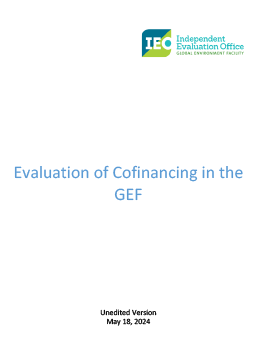Since its establishment, the Global Environment Facility (GEF) has disbursed over $24 billion, leveraging an additional $138 billion in cofinancing for projects that generate global environmental and adaptation benefits. The 2018 Updated Co-Financing Policy highlights cofinancing’s role in enhancing project effectiveness, sustainability, and broader environmental benefits, while also fostering partnerships. The GEF Council continues to emphasize its importance, setting ambitious targets and monitoring progress.
In response to a June 2022 GEF Council request, the GEF Independent Evaluation Office (IEO) conducted an evaluation of cofinancing. This assessment compares the GEF’s cofinancing strategy with those of other multilateral organizations, evaluating its effectiveness in scaling up activities, achieving results, ensuring sustainability, and strengthening partnerships. It also examines how the GEF and its partners raise and manage cofinancing, along with the factors influencing commitments and their realization.
The evaluation found that the GEF's approach to cofinancing is ambitious and flexible, helping it raise cofinancing from diverse sources and attract high levels of funding. Cofinancing enhances the scale of activities, their effectiveness, and their sustainability by fostering national ownership. However, challenges include the realization of commitments, credible reporting, and difficulties in ensuring proportionality in project management costs.
